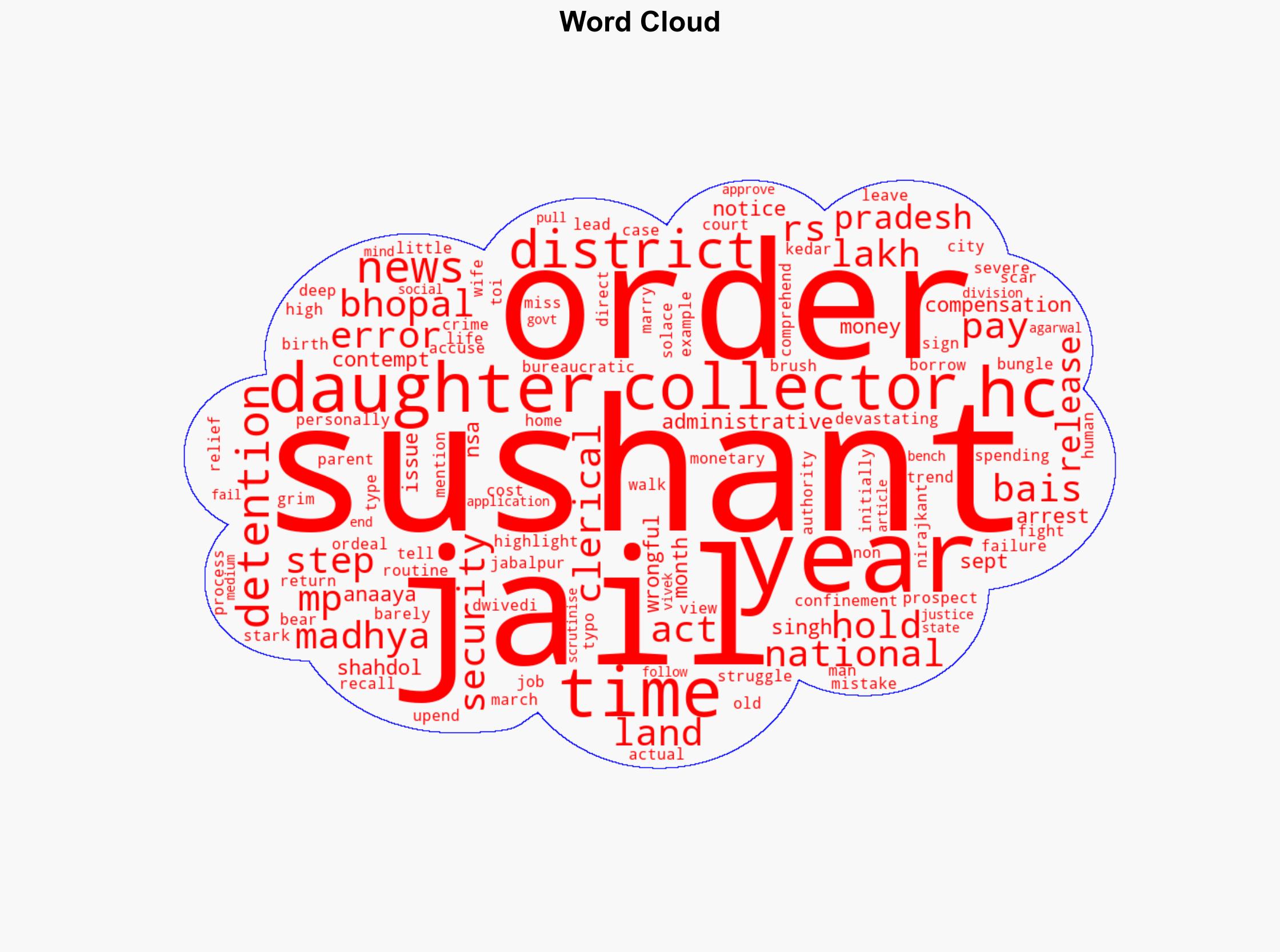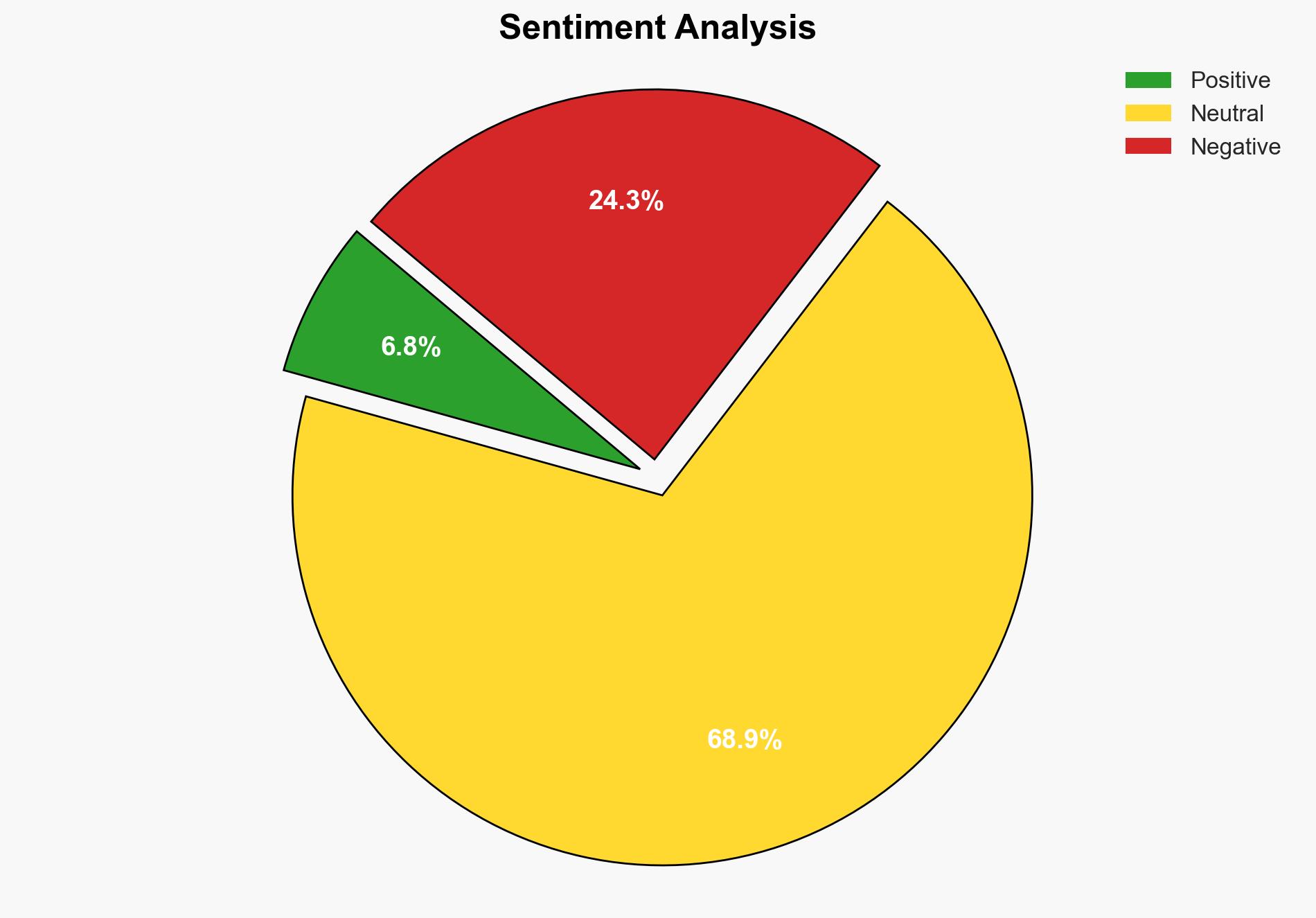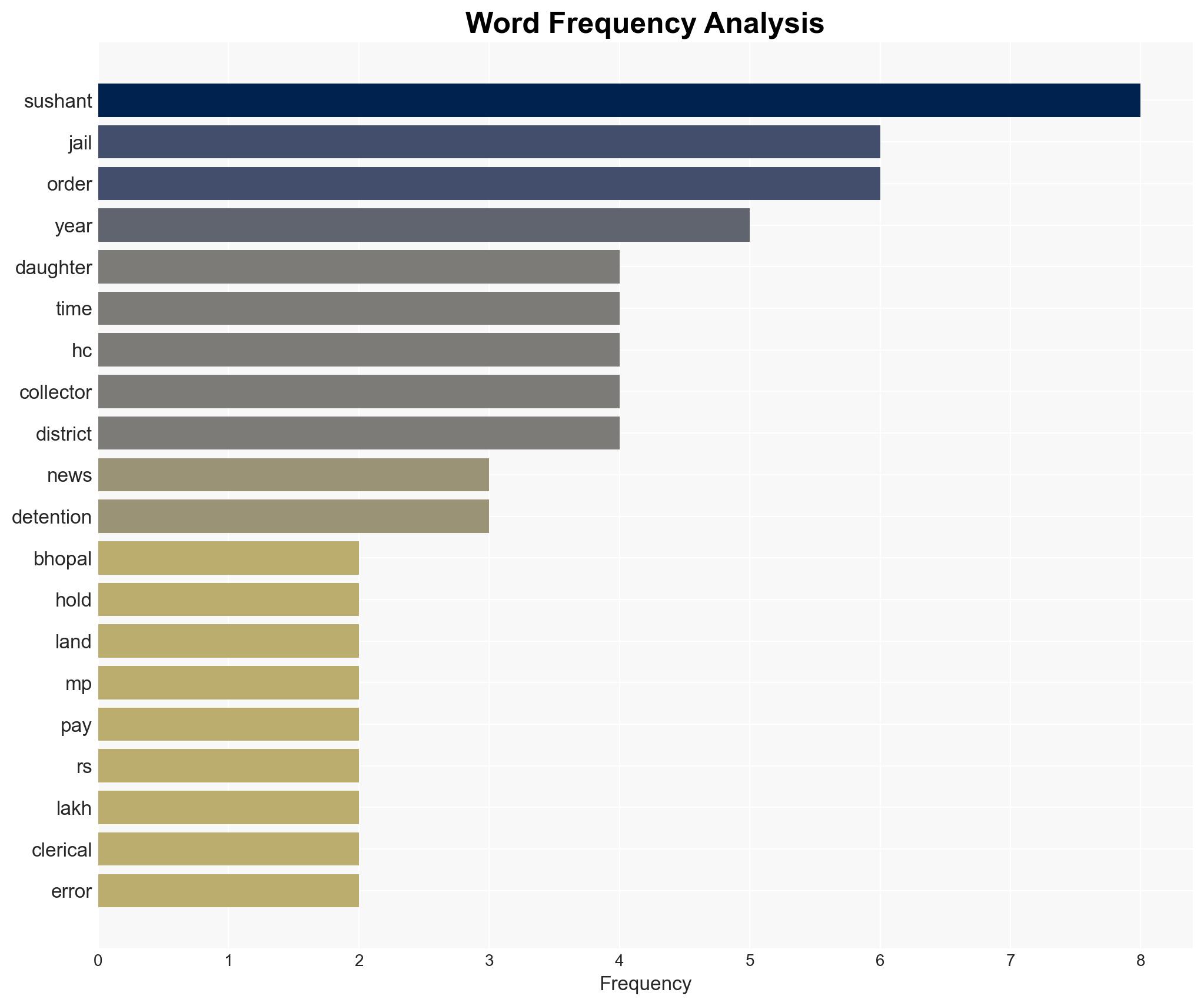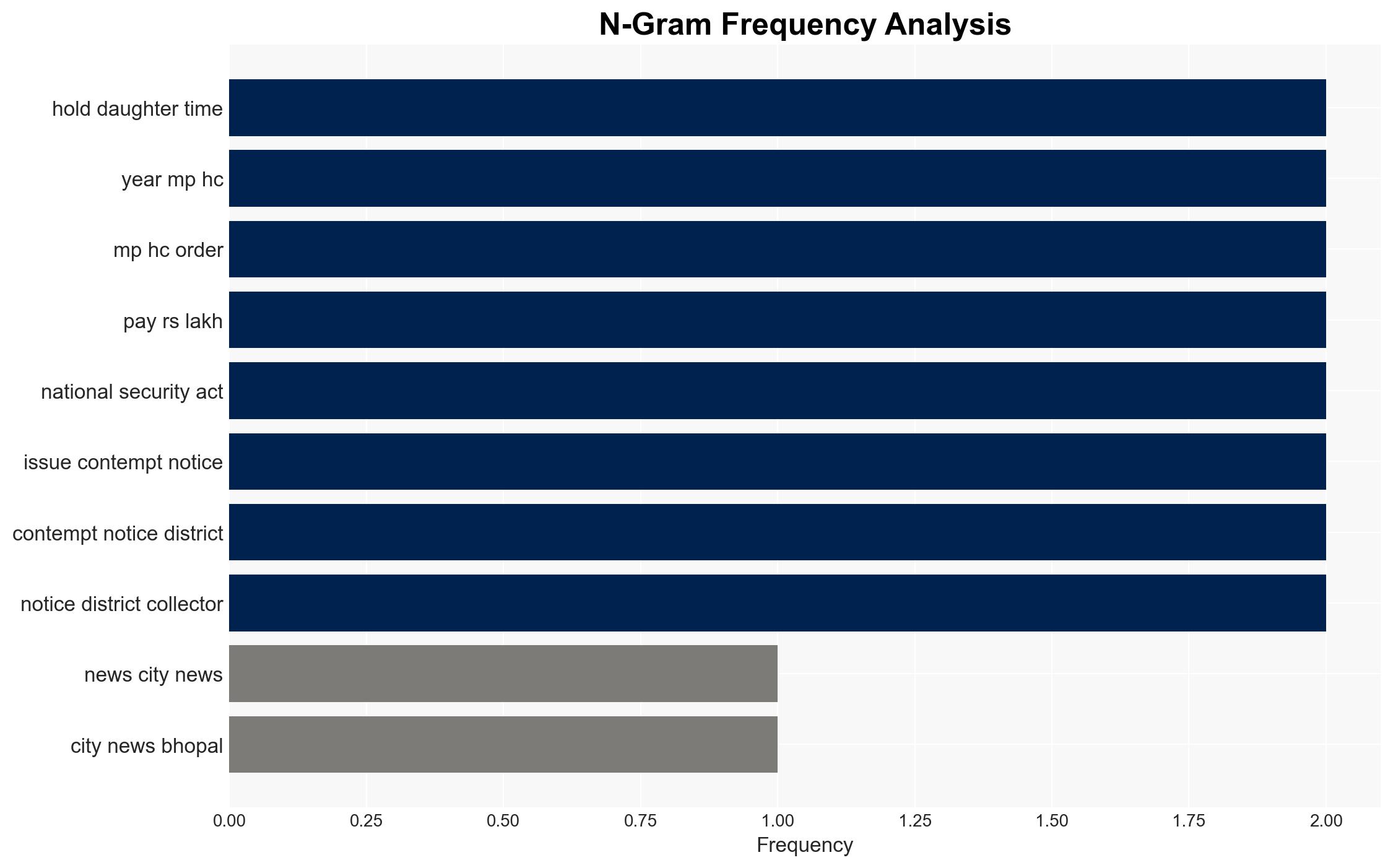‘I held my daughter for the first time’ Typo lands man in jail for a year MP HC orders collector to pay Rs 2 lakh – The Times of India
Published on: 2025-11-16
AI-powered OSINT brief from verified open sources. Automated NLP signal extraction with human verification. See our Methodology and Why WorldWideWatchers.
Intelligence Report:
1. BLUF (Bottom Line Up Front)
The wrongful detention of Sushant Bais due to a clerical error under the National Security Act (NSA) highlights severe administrative failures within the Madhya Pradesh bureaucratic system. The most supported hypothesis is that this incident is a result of systemic inefficiencies and lack of oversight rather than intentional malfeasance. Confidence level: Moderate. Recommended action includes a comprehensive review of administrative processes to prevent future occurrences and ensure accountability.
2. Competing Hypotheses
Hypothesis 1: The detention of Sushant Bais was a result of systemic administrative inefficiencies and lack of oversight, leading to a clerical error being overlooked until it caused significant harm.
Hypothesis 2: The detention was a deliberate act of malfeasance, potentially targeting Sushant Bais for undisclosed reasons, with the clerical error being used as a cover.
Hypothesis 1 is more likely due to the lack of evidence suggesting intentional targeting and the presence of multiple indicators of bureaucratic failure, such as the failure to scrutinize the detention order and the issuance of a contempt notice to the district collector.
3. Key Assumptions and Red Flags
Assumptions: The incident was unintentional and not part of a larger pattern of wrongful detentions. The compensation ordered by the court is adequate to address the harm caused.
Red Flags: The potential for similar errors in other cases due to systemic issues. The lack of immediate corrective action by authorities upon discovery of the error.
4. Implications and Strategic Risks
The incident poses risks to public trust in the judicial and administrative systems, potentially leading to increased scrutiny and demands for reform. There is a risk of political fallout if the issue is leveraged by opposition parties to criticize the ruling government. Additionally, there could be economic implications if similar cases lead to significant compensation payouts.
5. Recommendations and Outlook
- Conduct a thorough audit of current administrative processes related to detention orders to identify and rectify systemic weaknesses.
- Implement mandatory training for officials on the importance of due diligence in administrative processes.
- Establish a rapid response mechanism to address and rectify clerical errors promptly.
- Best-case scenario: Reforms lead to improved administrative efficiency and restored public trust.
- Worst-case scenario: Continued systemic failures lead to further wrongful detentions and significant public unrest.
- Most-likely scenario: Incremental improvements in administrative processes with ongoing public and political scrutiny.
6. Key Individuals and Entities
Sushant Bais, Kedar Singh (Shahdol District Collector), Justice Vivek Agarwal (MP High Court), Nirajkant Dwivedi (actual accused).
7. Thematic Tags
National Security Threats, Administrative Failures, Judicial Oversight, Public Trust
Structured Analytic Techniques Applied
- Cognitive Bias Stress Test: Expose and correct potential biases in assessments through red-teaming and structured challenge.
- Bayesian Scenario Modeling: Use probabilistic forecasting for conflict trajectories or escalation likelihood.
- Network Influence Mapping: Map relationships between state and non-state actors for impact estimation.
Explore more:
National Security Threats Briefs ·
Daily Summary ·
Support us
·





